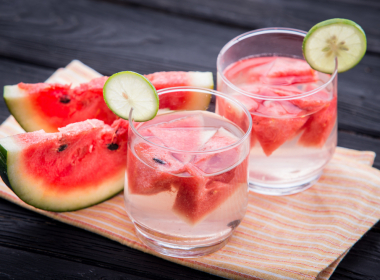You’ve had your eight hours of sleep. You’re drinking plenty of water. You even squeezed in a morning workout. So why are you still fighting to keep your eyes open by 3 PM? The surprising energy vampire might be lurking on your lunch plate.
While we’re quick to blame poor sleep or stress for our midday fatigue, the foods we eat play a massive role in our energy levels throughout the day. Some of the most common items in the average diet are silently draining your battery when you need it most.
Let’s pull back the curtain on these seemingly innocent foods that might be stealing your vitality right when you need it most.
The refined carb rollercoaster tanking your productivity
That white bread sandwich or bowl of pasta at lunch might be the unsuspecting culprit behind your afternoon brain fog. Refined carbohydrates like white bread, conventional pasta, and white rice create a perfect storm for energy crashes.
Here’s what happens: these simple carbs digest quickly, sending your blood sugar soaring. Your body responds with a flood of insulin to manage that spike. The result? Your blood sugar then plummets, often to levels lower than before you ate. This rollercoaster triggers fatigue, difficulty concentrating, and even mild anxiety or irritability.
What makes refined carbs particularly sneaky is how quickly they work. That energy burst feels great initially, convincing you they’re giving you fuel. But within 90 minutes to two hours, the crash hits, leaving you reaching for caffeine or sugar to compensate. This creates a vicious cycle that leaves you perpetually energy-depleted by day’s end.
The “healthy” breakfast option making you sleepy
That low-fat flavored yogurt with granola might seem like the perfect virtuous start to your day, but it could be setting you up for an energy deficit before you’ve even hit your stride.
Most commercial yogurt parfaits combine three energy-draining ingredients: sugar, processed grains, and dairy. The sugar and refined grains in the granola trigger the same blood sugar spike and crash as other refined carbs. Meanwhile, the dairy component requires significant digestive resources to process, temporarily diverting energy from your brain and muscles to your digestive system.
The timing makes this particularly problematic. That mid-morning energy dip often hits just as you’re tackling important work tasks, making concentration difficult and leaving you vulnerable to less healthy snack choices that perpetuate the energy-draining cycle throughout the day.
The lunch salad addition that triggers brain fog
Your virtuous salad topped with that creamy dressing might explain why focusing during afternoon meetings feels like swimming through molasses. High-fat dressings, especially those containing both fat and sugar, create the perfect recipe for post-meal sluggishness.
When you consume a high-fat meal, your body releases a hormone called cholecystokinin that can trigger feelings of sleepiness. Add sugar to the mix, and you’re setting yourself up for the additional crash that follows a blood sugar spike. That ranch or honey mustard dressing might be sabotaging your afternoon performance more than you realize.
Even more surprising, some “healthy” dressings are actually energy vampires in disguise. Many reduced-fat options compensate by adding extra sugar, potentially making them even more fatigue-inducing than their full-fat counterparts. Your body must process this combination of fat and sugar simultaneously, creating a perfect storm for afternoon drowsiness.
The sneaky sources of hidden sugars draining your battery
Those packaged foods marketed as “natural” or even “low sugar” might be packed with hidden sweeteners that drain your energy through repeatedly triggering insulin responses. These sneaky sugars hide behind dozens of different names on ingredient lists.
Seemingly healthy options like bottled smoothies, protein bars, and even savory items like tomato sauce and salad dressings often harbor surprising amounts of added sweeteners. A single bottle of store-bought tea can contain more sugar than a candy bar, while still wearing a health halo.
What makes hidden sugars particularly problematic for energy levels is how they fly under the radar. You might carefully avoid obvious desserts and sodas while unknowingly consuming substantial sugar through “healthy” alternatives, leaving you puzzled about why fatigue still hits like clockwork every afternoon.
The caffeine trap making you more tired
That afternoon coffee seems like the perfect pick-me-up, but it might actually be perpetuating your energy crisis. Caffeine doesn’t actually provide energy, it simply blocks adenosine, the compound that makes you feel tired. When the caffeine wears off, that accumulated adenosine comes rushing back, often leaving you more exhausted than before.
Even more problematic is how caffeine affects sleep quality. That 2 PM cup of coffee could still be in your system at bedtime, reducing your deep sleep by as much as 20% even if you fall asleep without difficulty. This creates a vicious cycle where you wake up less refreshed, reach for more caffeine, and further compromise your sleep the following night.
What many people don’t realize is that caffeine has a half-life of 5-6 hours in the average adult. This means that half the caffeine from your 3 PM coffee is still actively affecting your body at 9 PM, potentially disrupting the sleep that would actually solve your energy problems more effectively than any caffeinated beverage.
The alcohol aftermath you didn’t expect
That single glass of wine with dinner might seem harmless, but alcohol’s energy-draining effects extend well beyond the morning after. Even moderate amounts disrupt your sleep architecture, particularly reducing REM sleep, which is crucial for cognitive restoration and emotional regulation.
While alcohol initially acts as a sedative helping you fall asleep faster, it quickly becomes a sleep disruptor as your body metabolizes it. This creates fragmented sleep with more awakenings, leaving you less refreshed even if you’ve technically spent eight hours in bed.
Perhaps most surprising is how long these effects last. A single drink can impact your energy levels for up to 24 hours through various mechanisms, including disrupting blood sugar regulation, dehydrating your tissues, and taxing your liver, which then diverts energy from other systems to process the alcohol.
The dehydrating drinks masquerading as refreshments
That afternoon iced tea or diet soda might seem like a refreshing way to power through the day, but these beverages often contain compounds that actively dehydrate you, leading to fatigue even if you’re drinking plenty of fluids.
The caffeine in tea, coffee, and some sodas acts as a diuretic, potentially causing your body to expel more fluid than you’re consuming. Meanwhile, the artificial sweeteners in diet drinks can alter how your body processes glycogen, affecting your energy reserves during periods of activity.
Even mild dehydration, as little as 1-2% of your body weight, significantly impacts energy levels and cognitive function. Research shows that this degree of dehydration can reduce attention, memory, and processing abilities while increasing feelings of fatigue and anxiety, all without triggering noticeable thirst.
The sneaky energy thieves in your diet don’t always announce themselves. Many wear health halos or hide in foods you’d never suspect of causing fatigue. The good news? Simply recognizing these patterns gives you the power to make energy-supporting choices instead.
Rather than reaching for quick fixes like caffeine or sugar when fatigue strikes, consider whether your previous meal might be the actual culprit. Opt for balanced combinations of complex carbs, lean proteins, and healthy fats that provide sustained energy instead of the spike-and-crash pattern that leaves you perpetually tired.
Remember, your body is remarkably responsive to dietary changes. Within just a few days of swapping these energy vampires for more sustaining options, you might find yourself sailing through that 3 PM slump with energy to spare for whatever comes next.

















